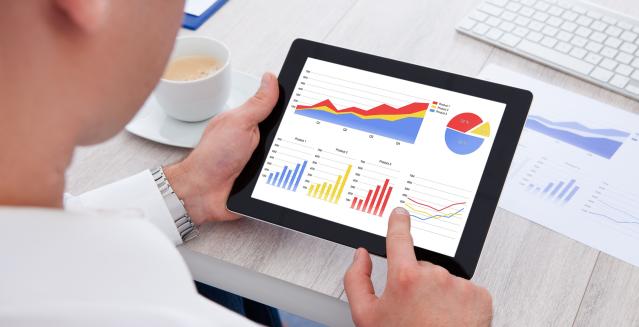In today’s fast-paced world, managing personal finances effectively is more crucial than ever. The key to financial stability and growth lies in understanding where your money is going and how to manage it better. Fortunately, a range of top free personal finance software tools can help you achieve this without breaking the bank. These tools offer a powerful solution for anyone looking to unlock their financial potential by providing comprehensive assistance in tracking spending, saving and even investing.
In this article, we’ll explore some of the best free personal finance software available today. We’ll also delve into how these tools can help you take control of your finances, making it easier to achieve your financial goals.
Why Personal Finance Software Is Essential
Managing finances manually can be a daunting task. With bills to pay, investments to track, and savings to manage, it’s easy to lose track of your financial situation. Personal finance software simplifies this process by automating many of the tasks involved in managing your money.
These tools allow you to:
- Track spending: See where your money is going each month.
- Set budgets: Create and stick to budgets to ensure you’re not overspending.
- Manage investments: Keep track of your portfolio and see how your investments are performing.
- Plan for the future: Set financial goals and track your progress toward them.
- Reduce debt: Understand your debt situation and create a plan to pay it off.
By using personal finance software, you can gain a clearer picture of your financial situation and make informed decisions about how to manage your money.
Top Free Personal Finance Software Tools
There are several free personal finance software tools available that can help you take control of your finances. Here are some of the best options:
1. Mint
Mint is one of the most popular free personal finance tools available today. It offers a comprehensive suite of features designed to help you manage your money effectively. With Mint, you can track your spending, create budgets, and even monitor your credit score.
- Features:
- Automatic categorization of transactions.
- Budgeting tools that alert you when you’re nearing your limits.
- Bill reminders to help you avoid late payments.
- Investment tracking to monitor your portfolio.
- Access to your credit score for free.
- Pros:
- Easy to use interface.
- Comprehensive financial management tools.
- Free access to your credit score.
- Cons:
- Ads can be intrusive.
- Some features may require linking to your bank account, which raises privacy concerns for some users.
2. Personal Capital
Personal Capital is another excellent tool that offers a mix of budgeting and investment management features. While it is primarily geared toward investment management, its free version includes powerful tools for budgeting and tracking spending.
- Features:
- Net worth tracking to see the bigger picture of your finances.
- Cash flow tracking to monitor your spending and saving habits.
- Investment tracking and analysis to optimize your portfolio.
- Retirement planner to help you prepare for the future.
- Pros:
- Comprehensive investment tracking features.
- Free access to financial planning tools.
- No ads in the free version.
- Cons:
- Some features are more geared toward investors than general users.
- Limited budget management tools compared to other software.
3. YNAB (You Need a Budget)
YNAB is a powerful budgeting tool that helps you allocate every dollar you earn to a specific purpose. While YNAB is not entirely free, it offers a 34-day free trial, which is an excellent opportunity to see if it’s the right fit for your financial management needs.
- Features:
- Goal-setting tools to help you save for specific purposes.
- Real-time budget tracking to monitor your spending.
- Debt paydown tools to help you become debt-free.
- Educational resources to improve your financial literacy.
- Pros:
- Strong focus on budgeting and financial goal-setting.
- Excellent support and educational resources.
- Regular updates and new features.
- Cons:
- Requires a subscription after the trial period.
- Steeper learning curve compared to other tools.
4. Goodbudget
Goodbudget is an envelope budgeting software that helps you allocate your income into different categories or “envelopes” for things like groceries, rent, and entertainment. This method can be particularly useful for those who prefer a more hands-on approach to budgeting.
- Features:
- Envelope budgeting system to allocate funds for specific purposes.
- Syncs across devices, allowing family members to share a budget.
- Reports and charts to visualize your spending and saving habits.
- Debt tracking to help you pay off loans and credit cards.
- Pros:
- Simple and straightforward envelope budgeting system.
- Cross-device syncing makes it ideal for families.
- Free version available with no ads.
- Cons:
- Limited to budgeting, with no investment or credit score tracking features.
- May require manual entry of transactions, which can be time-consuming.
5. GnuCash
GnuCash is a free, open-source personal finance software that offers a range of features for managing your money. It is more suited to users who have some accounting knowledge, as it uses a double-entry accounting system.
- Features:
- Double-entry accounting system for accurate financial management.
- Comprehensive reports to track your financial health.
- Budgeting tools to help you manage your income and expenses.
- Investment tracking to monitor your portfolio.
- Pros:
- Completely free with no ads or in-app purchases.
- Powerful accounting features for advanced users.
- Customizable reports and charts.
- Cons:
- Steep learning curve, especially for those unfamiliar with accounting.
- User interface is less intuitive compared to other tools.
6. Money Manager Ex
Money Manager Ex is another free, open-source personal finance software that offers a good balance of simplicity and features. It is designed to be easy to use, making it a great option for those new to personal finance software.
- Features:
- Simple interface for tracking income, expenses, and budgets.
- Investment tracking to monitor your assets.
- Reporting tools to visualize your financial data.
- Available on multiple platforms, including Windows, Mac, and Android.
- Pros:
- User-friendly interface.
- No ads or hidden costs.
- Cross-platform support.
- Cons:
- Lacks some advanced features found in other software.
- No mobile app for iOS users.
How to Choose the Right Personal Finance Software
With so many options available, it can be challenging to choose the right personal finance software for your needs. Here are some factors to consider:
1. Your Financial Goals
Think about what you want to achieve with your personal finance software. Are you primarily interested in budgeting, or do you also want to track investments? Understanding your goals will help you choose the software that best meets your needs.
2. Ease of Use
Consider how comfortable you are with technology. Some personal finance software, like Mint and YNAB, are designed to be user-friendly, while others, like GnuCash, may require a bit more technical know-how.
3. Features
Different software offers different features, so it’s essential to choose one that provides the tools you need. For example, if you’re interested in tracking your investments, Personal Capital might be the best choice. If you’re focused on budgeting, YNAB or Goodbudget could be a better fit.
4. Cost
While all the software mentioned in this article offers free versions, some also have premium versions with additional features. Consider whether you’re willing to pay for extra features or if a free version will suffice.
5. Privacy and Security
Your financial data is sensitive, so it’s crucial to choose software that offers strong privacy and security features. Look for software that uses encryption to protect your data and has a clear privacy policy.
Unlock Your Financial Potential with the Right Tools
Using the right personal finance software can be a game-changer in how you manage your money. These tools can help you gain a better understanding of your financial situation, set and achieve your financial goals, and ultimately unlock your financial potential.
Whether you’re looking to create a budget, track your investments, or plan for retirement, there’s a free personal finance software option out there that can help you get on the right track. By taking the time to explore these tools and choose the one that best suits your needs, you’ll be well on your way to achieving financial success.
Conclusion
Managing personal finances doesn’t have to be a complicated or time-consuming task. With the help of free personal finance software, you can streamline the process and make informed decisions that will benefit your financial future. From Mint’s comprehensive tools to GnuCash’s advanced accounting features, there’s something for everyone.
Start by identifying your financial goals and choosing the software that aligns with those goals. With the right tool in hand, you’ll be equipped to unlock your financial potential and take control of your money like never before.







